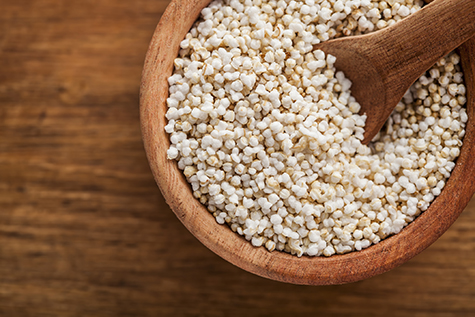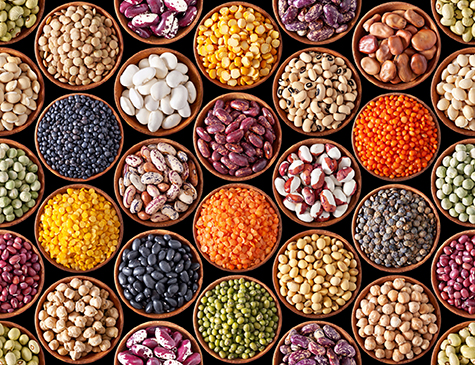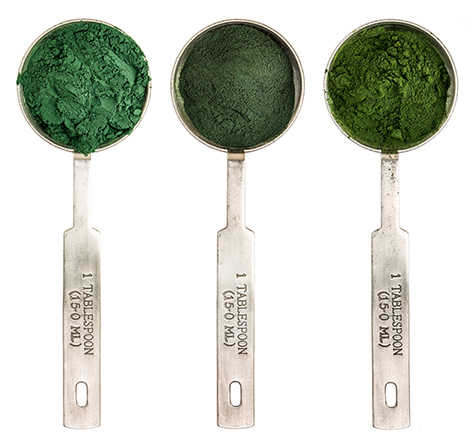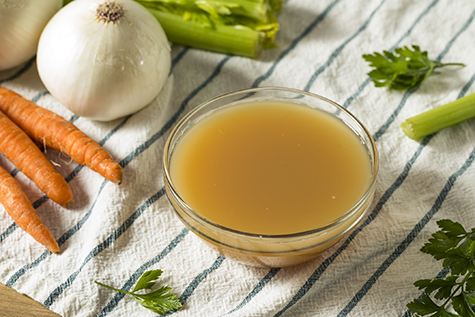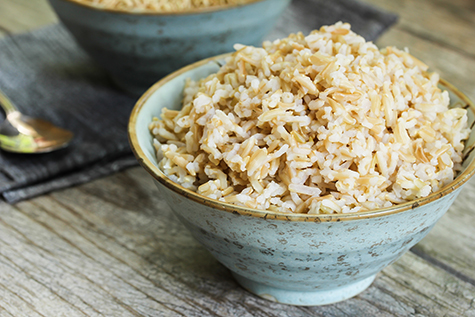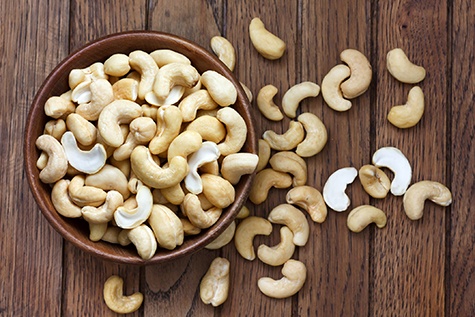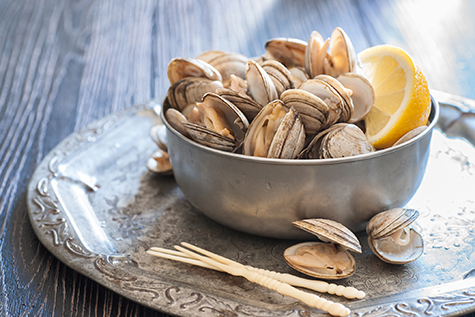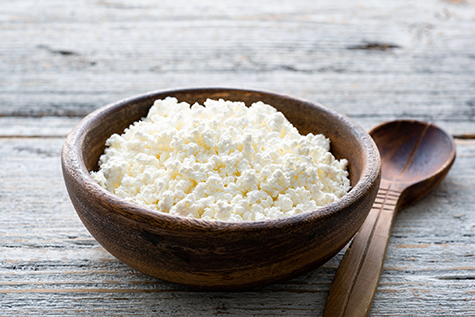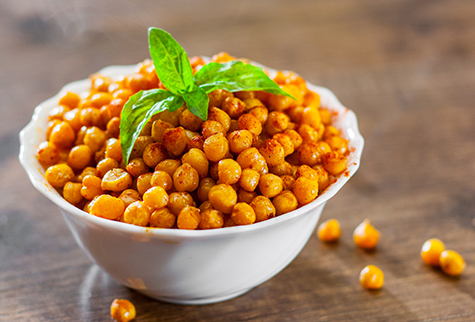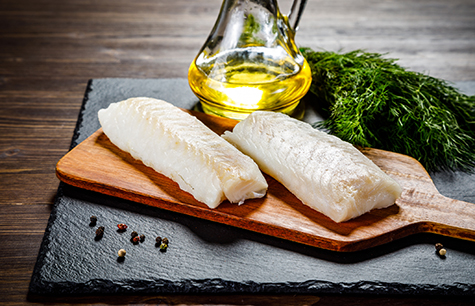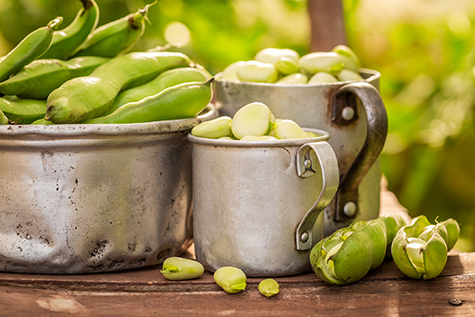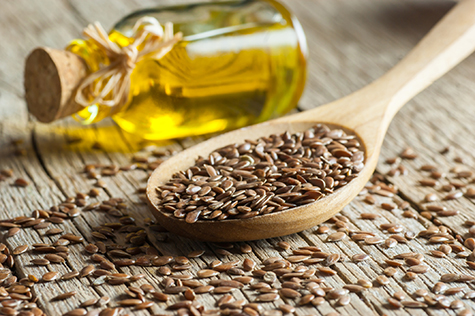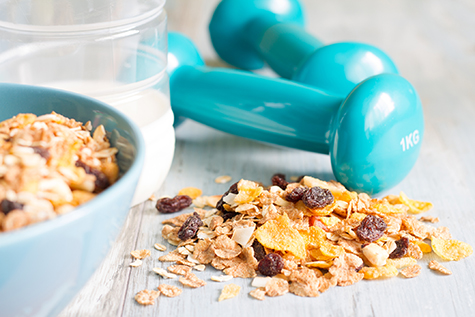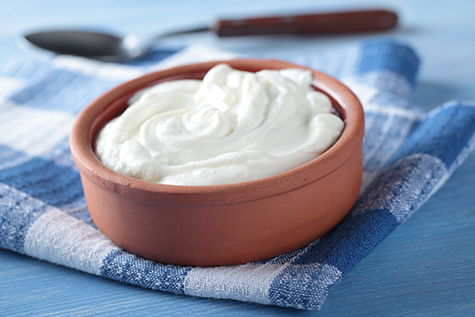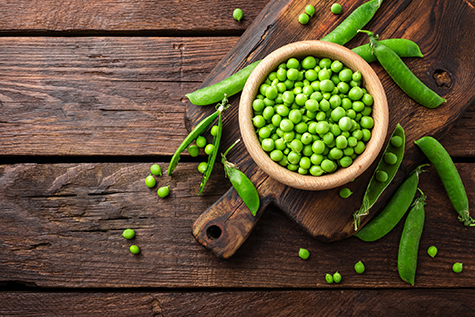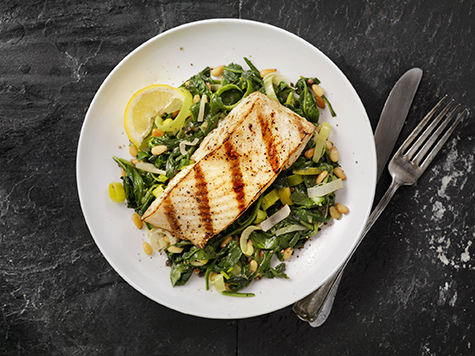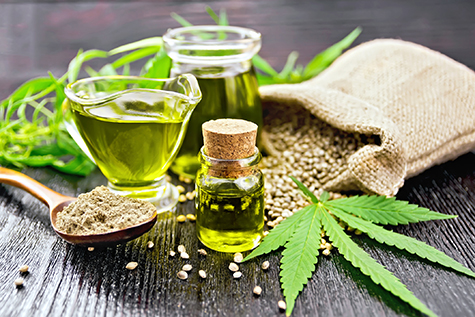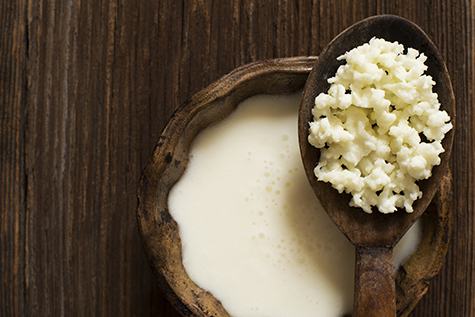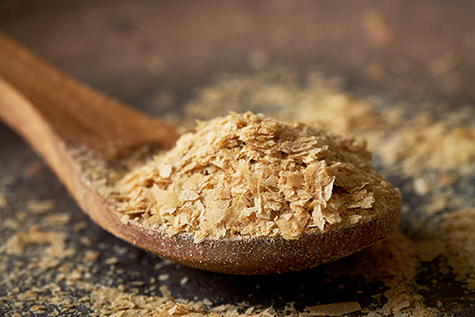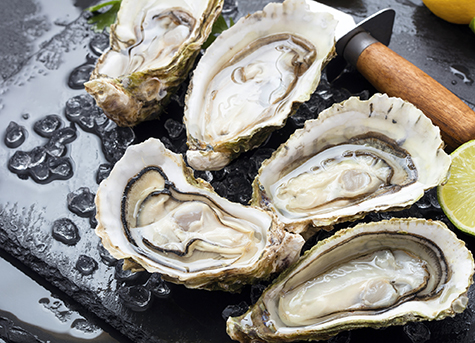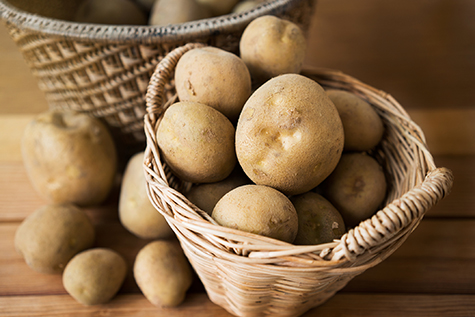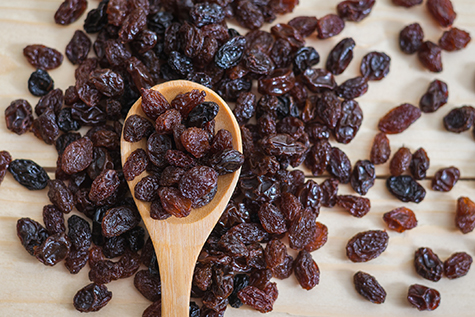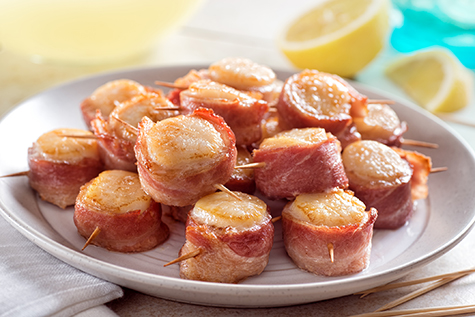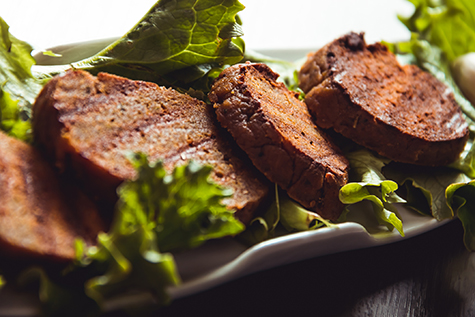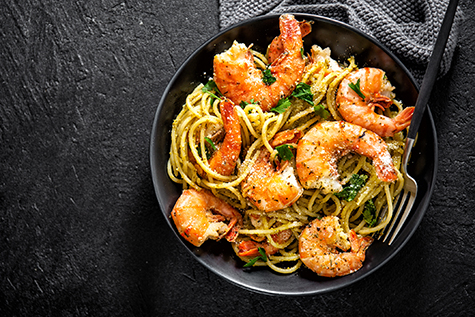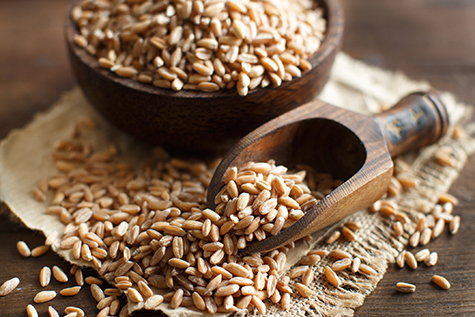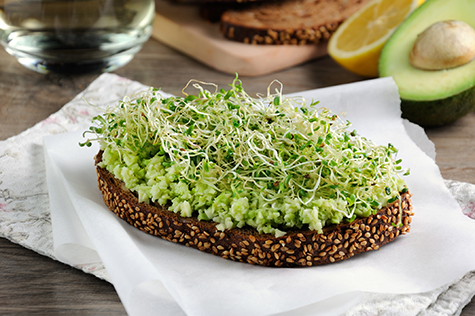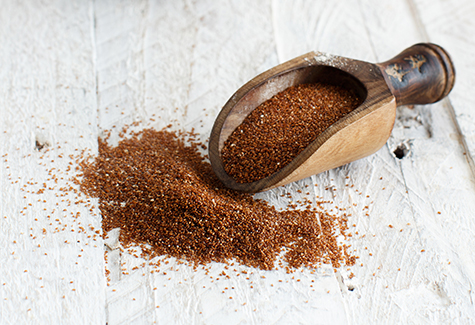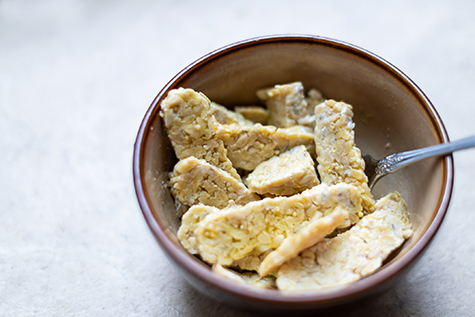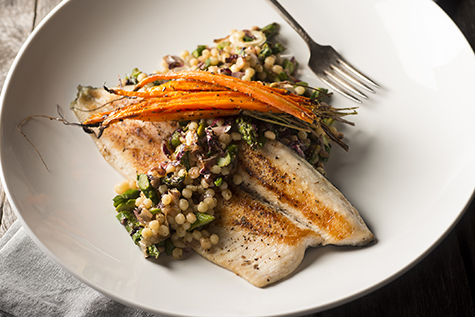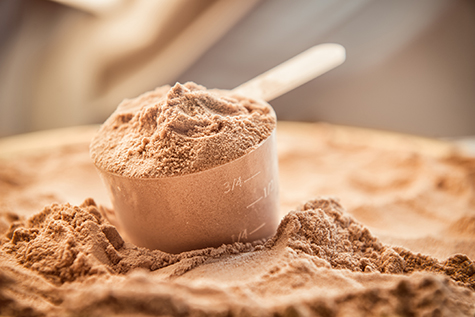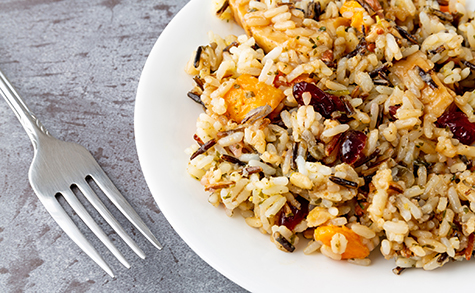Top 50 Foods To Support Muscle and Metabolism


Thinking about your muscle mass isn’t just for body builders. Every single person needs to focus on maintaining their “lean body mass.” Not only does this protect your ability to be active and live healthfully as you age, it is a key part of having a healthy metabolism. Muscle is so much more metabolically active than fat. The more muscle mass you build, the healthier your metabolism will be and the easier it will be to burn fat and achieve balance. Amino acids are the building blocks of protein, so these types of foods are key but so are other vitamins, minerals, and macronutrients like carbohydrates. Here are the FoodTrients top 50 foods to support muscle and metabolism.
1. Amaranth
A healthy ancient whole grain, amaranth is naturally gluten-free and versatile for cooking and baking. Researchers have studied this grain’s superior protein content, even comparing it in one study to the high-quality protein in cheese. They concluded that the protein from amaranth is comparable to protein found in animal foods. Bonus: it’s high in fiber!
2. Avocado
One of the highest protein fruits is everyone’s favorite: avocado. Packed with healthy calories and fat for fuel, you’ll still get 4 grams of protein from a cup of avocado. Blend it into a smoothie or smear it on toast as a pre- or post-workout option that will help support your muscle growth.
3. Banana
No, bananas don’t contain much protein. However, they are incredible complex-carb-rich snacks to include pre-or post-workout so that your muscles have the energy (glycogen) you need to perform. In order to build muscle, you need to use them. That will require a lot of energy to get through a tough workout so eating a snack that contains carbohydrates will actually increase your ability to build muscle.
4. Beans
Forget beef burgers; beans are taking over as the plant-based trend continues to boom in popularity. There are many reasons for this – growing beans take less water and produce less greenhouse gas emissions than growing cows for one. Also, beans are a rich source of protein and have the added benefit of complex carbohydrates to fuel your workout and replenish energy stores in your muscles.
5. Blue-Green Algae
Ever heard of spirulina and chlorella? If you want to focus on muscle mass and metabolism, you should consider using them. These sea-vegetables are usually found in powder form in your supplement aisle. Keep in mind they’re bright blue so anything you use them for will turn that color, but benefits include anti-inflammatory omega-3 fatty acids and 4 grams of protein per tablespoon.
6. Bone Broth
Bone broth is a popular product that you can now find in any grocery store and it may have some benefit for muscle building. It’s a natural source of collagen which is part of the structure of muscle and connective tissue in the body. Up to 10% of muscle is made of collagen so sip on bone broth for hydration, electrolytes and muscle-building properties.
7. Broccoli
No, broccoli isn’t a rich source of protein, though it is considered a higher-protein veggie with nearly 3 grams in a cup. Importantly, it contains antioxidant vitamin C which is not only anti-inflammatory for the body during tough workouts but also is a pre-cursor to collagen, an important building block for muscle.
8. Brown Rice
Whole grain brown rice is another complex carbohydrate to fuel your workouts. Also, just ½ cup contains over 10% of our daily value of magnesium which is an important bone and muscle builder. Magnesium is often given to prevent muscle cramps so try instead meeting your needs through whole foods. Bonus: brown rice provides energy for your muscles during a workout.
9. Cashews
Cashew nuts are a perfect combination of complex carbohydrates, fiber and protein for fueling workouts and building muscle. 1 ounce contains 9 grams of complex carbs and over 5 grams of protein. This balance makes for a perfect pre- or post-workout snack because the carbs fuel the workout and the protein provides the building blocks.
10. Cheese
Yes cheese made the list of 50 healthy foods! Though it doesn’t contain carbohydrates, it’s a wonderful source of protein. It also contains a high amount of fat and so it’s rich in calories to help replenish what your body burns during an intense workout. Just 1 ounce of cheese has 7 grams of protein.
11. Clams
All seafood is a good source of protein combined with healthy fat. In just 10 small clams, you’ll get 25 grams of protein to fuel your muscles and provide those amino acid building blocks you need to maintain lean body mass. A huge benefit of shellfish like clams is their minerals such as calcium, iron and zinc which help the body support healthy bones and red blood cells.
12. Cottage Cheese
The simplest of breakfast or snack, cottage cheese is a wonderful source of protein combined with carbohydrates. It would be an ideal pre- or post-workout fuel that you can easily grab and go. Just 1 cup contains 25 grams of protein and 8 grams of carbs to support your muscles.
13. Chia Seeds
Chia seeds are a wonderful plant-based protein option which also offer anti-inflammatory properties in the form of omega-3 fatty acids. Enjoy a simple chia seed pudding before or after your workout for healthy fat, complex carbs and protein.
14. Chickpeas
All beans are the friends of a healthy metabolism. Chickpeas, or garbanzo beans, are no exception. Versatile and delicious, they are a great source of protein but also offer complex carbs to fuel your workouts. Toss chickpeas on a salad or roast them in the oven for a light, crunchy snack you can enjoy on the way to or from the gym.
15. Cod
All fish is a great source of protein that also offers unsaturated fatty acids. Cod and other fish also contain vitamin B12 which plays a major role in building muscle. Just 3 ounces contains 0.8 mcg which gets you well on your way towards your daily intake. B12 helps the body make healthy red blood cells which in turn bring oxygen to hard working muscles during a workout.
16. Eggs
Eggs are an incredibly healthy and versatile food. Not only is there about 7 grams of protein in just 1 egg, the yolk also offers vitamins, minerals and antioxidants that the body needs to build muscle. Hard boil some eggs for meal prepping so you can take one with you on the way to the gym.
17. Fava Bean
Also sometimes called “broad beans”, these large beans are amazing for building muscle and stoking the metabolism. A cup of fava beans offers 13 grams of plant-based protein (bonus: you’ll get fiber as well!). Like other beans, they are rich in vitamins and minerals; get access to iron, magnesium and zinc when you enjoy fava beans.
18. Flax
Flax seeds offer both complex carbs for fuel, protein for muscle building and also omega-3 fatty acids to help combat inflammation that could build up when you’re training hard. Make sure to grind your flax before eating it (try putting it on oatmeal or in a smoothie) so that the body can more easily access the benefits. Whole flax seeds often move through the digestive tract unable to be broken open.
19. Fortified Breakfast Cereal
High fiber, low sugar whole grain cereal can be an incredible source of fuel for your body that can help build muscle. Many cereals have added B-vitamins and iron which are critical for building healthy red blood cells which will bring oxygen around the body to muscles when you’re working out.
20. Greek Yogurt
All yogurt is a great source of protein, but Greek yogurt is made in such a way that it provides an even higher amount. Greek yogurt is thicker and has a lower carb content than regular yogurt, yet it still contains gut health promoting good bacteria as well as vital minerals for bone health such as calcium and phosphorus.
21. Green Peas
Simple green peas are a muscle building and metabolism powerhouse. Fresh, frozen or canned, include green peas in your daily routine. They’re high in complex carbohydrates but also contain a nice amount of protein. This combination has been mentioned several times because it’s exactly what your body needs to fuel and build. A cup of peas contains 8 grams of protein.
22. Halibut
This fatty fish lives in cold waters which means that it’s going to be packed with omega-3 fatty acids. In addition to protein, it’s helpful to find foods that can help calm the body and quench free radicals. Whenever you’re training hard and building muscle, some natural damage occurs and you need foods that help mop it up and help the body recover quickly.
23. Hemp
Soft, nutty hemp seeds are the perfect addition to your diet if you’re looking to build muscle and support your metabolism. Rich in complex carbs, omegas and protein, this is the ideal trifecta to help support your body as you work on your fitness. 3 tablespoons provide over 10 grams of protein so toss them in your cereal, add them to a smoothie or put them on your next salad.
24. Kefir
Tangy kefir, a fermented yogurt beverage, is a great way to refuel after a workout if you want to keep things light on your stomach. A natural beverage, lightly sweet and delicious, a cup of kefir has 10 grams of protein plus bone building calcium.
25. Lentils
Lentils are so rich in fiber that you likely don’t want to consume them right before a hard workout. However, afterwards, this is an ideal food to use to replace glycogen stores that the body needs for energy. Lentils are rich in protein as well with 18 grams in a cup. Toss them in a salad or enjoy some lentil soup to replace your electrolytes after a hard workout. Bonus: they’re rich in iron to help your red blood cells thrive.
26. Milk
Yes, plain milk is an incredible fuel for your active body. Balanced in a unique way that offers both carbohydrates, fat and protein (8 grams per cup), many athletes use both regular and chocolate milk to fuel their workouts. High fat foods can be harder to digest when you’re working out so choose a lower fat option – 1% or 2%.
27. Nutritional Yeast
Flavorful nutritional yeast is nearly always fortified with B vitamins including B12. You need this class of vitamins to support blood cells that transport oxygen to the muscles. Additionally, it’s a nice source of protein with 4 grams in 2 tablespoons.
28. Oatmeal
Full of slow-burning, high fiber, complex carbs that help fuel the body while stabilizing blood sugar for long-term energy, oats are dense in nutrients and also offer some protein. One cup of regular oatmeal contains 6 grams of protein and 70 mg of magnesium to support your muscle growth when active.
29. Oysters
These salty shellfish can help you replace the electrolytes you lose when working out and they are also rich in anti-inflammatory omega-3s and protein. 1 medium sized oyster offers 5 grams of protein so even a little can go a long way to helping you build muscle. If you enjoy them, oysters could really compliment your training routine.
30. Peanuts
Peanuts contain many vitamins and minerals that help build muscle. In addition to b-vitamins for supporting red blood cell production, just ¼ cup of peanuts provides 16% of your daily value of magnesium which can help reduce muscle cramping and build healthy bones. Peanuts are a great source of plant-based protein.
31. Potato
Did you know that potatoes have such quick burning energy that some marathon runners use them for fuel during races? Don’t let simple potatoes fool you; they are rich in critical nutrients for intense workouts including iron, zinc, and magnesium. Bonus: keep the skin on for even more nutrition and fiber.
32. Pumpkin Seeds
Versatile pumpkin seeds (aka pepitas) are great sources of healthy fat calories, protein and magnesium which helps build both bones and muscles. A serving can have up to 5 grams of protein. Uniquely, they are packed with zinc which is critical for muscle building reactions.
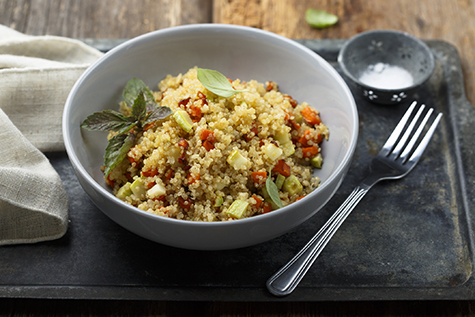
33. Quinoa
This whole grain is truly unique. It is a very rich source of protein and it also contains all the essential amino acids, like meat and soy does. Many grains, seeds and beans are limited in one or more amino acids. There’s no real worry about this as long as you eat a variety of foods; the body has large stores and it can use them as needed. However, it’s always nice to find a very high-quality plant-protein and quinoa is it with over 8 grams of protein in a cup.
34. Raisins
No, raisins aren’t very high in protein. However, they do support muscle growth through their wonderful complex carbohydrate’s energy content and even more importantly, their iron. This mineral is critical to a healthy metabolism, red blood cells and energy. ¼ cup of raisins contain 1 mg of iron. That might not sound like a lot but adult men only need 8 mg per day. A serving of raisins can help get you there.
35. Salmon
This delicious cold-water fish contains several nutrients that could benefit your muscle building activities including magnesium, iron and B-12. It also contains 17 grams of protein in 3 ounces plus omega-3s to calm inflammation that could build up when working out hard to build muscle.
36. Scallops
Scallops are a unique shellfish; their delicate white meat provides 20 grams of protein in just 100 calories. They contain omega-3s like so many other seafoods on this list and they also have B12, iron and calcium for bone and red blood cell health that are so critical to living an active life.
37. Seitan
You may see this plant-based protein at your local vegetarian restaurant listed on the menu. Also called “vital wheat gluten”, this is a meat substitute made from the protein in wheat. It has a chewy, meat-like texture that takes on whatever flavor you choose to add to it. It’s not appropriate for those avoiding gluten but if you’re not, it could be a nice protein to add to the diet.
38. Shrimp
Fresh or frozen, large or small, shrimp are a versatile protein source that have added benefits of minerals that help support muscle growth and red blood cell production as well as unsaturated fatty acids to fuel the body. Enjoy some shrimp on their own as a snack or on top of a fresh salad or some whole grain pasta for a comprehensive and healthy meal.
39. Spelt
This whole grain is actually a type of wheat, except that it’s higher in protein than regular wheat is. In Italy, they sell spelt as “farro grande” (big farro). Farro is also a form of wheat and so all of these grains offer a rich source of carbohydrate and fiber in addition to vitamins, minerals and antioxidants. Enjoy a simple pb&j on spelt bread pre-workout.
40. Spinach
Like broccoli, spinach is another green veggie that actually does contain protein; 1 cup has about a gram. The benefit really lies in its ability to quench free radical damage the body produces from working out hard – vitamin C especially. Spinach helps build muscle also because of its iron content which helps fuel red blood cells so they can carry oxygen to muscle.
41. Sprouted Grains
Studies show that sprouting grains can actually make nutrients and protein more bioavailable to the body. That’s right; sprouted grains can increase the body’s ability to absorb nutrients. Look on the label of breads, cereals, bars and protein powder for the words “sprouted grains” or “sprouted” before the grains are listed out so that you know you’re getting a product your body can easily utilize.
42. Sunflower Seeds
Another on-the-go snack for pre- or post-workout, simple sunflower seeds have more than just healthy calories and protein (21 grams of protein in a 100-gram serving). They contain minerals like zinc, magnesium and iron to support red blood cells and give the body the building blocks it needs to grow and maintain muscle mass.
43. Teff
If you’ve ever had Ethiopian food, you’ve likely had teff in the form of “injera” flatbread. This ancient grain used in many cultures provides a lot of nutrition that can support muscle building and metabolism. Enjoy it as a hot cereal, in flour as baked foods and as a side-dish for a protein-packed, complex-carbohydrate source that can fuel your body.
44. Tempeh
This fermented soy product is so versatile and packed with both antioxidants and protein. Crumble it into taco ‘meat’ or slice it up in a sandwich or wrap for an on-the-go source of fuel for your muscles. There’s a whopping 31 grams of protein in a cup of tempeh. Bonus: it’s a fermented food that’s good for gut health.
45. Tofu
Tofu can be enjoyed in so many ways from scrambles to stir-fries, appetizers, salads and sandwiches. With 20 grams of protein in a cup, tofu also provides healthy unsaturated fat and vitamins and minerals your body needs to build muscle including magnesium, iron and B6. Bonus: it’s high in calcium to support your bones which also grow stronger when you work out.
46. Trout
Sometimes people forget that trout is a great source of omega-3 fatty acids. Another cold-water fish, trout is often found in rivers but it’s still a great way to calm inflammation in the body. Plus, with 17 grams of protein in 3 ounces, it’s a wonderful way to replenish the body’s amino acid stores so it can build muscle.
47. Tuna
So convenient and versatile, you can grab and go tuna in cans and in pouches. Low in calories and high in protein (nearly 25 grams in 3 ounces), tuna is a perfect food for building muscle. Enjoy it post workout when your body really needs to replenish stores but keep in mind that tuna can be a source of mercury if this is an issue for you in any way.
48. Walnuts
These nuts are high in protein with over 4 grams in just 1 ounce but they have many other benefits for fueling your muscles as well. They’re a natural, plant-based source of omega 3 fatty acids and they also contain vital nutrients for supporting both muscle mass and red blood cells: biotin and iron.
49. Whey
Whey is one of the gold standards of protein powders. Flavorless and mild, it has a fluffy texture that blends perfectly into smoothies and other beverages. You can boost your protein intake (it’s 90% protein) so easily with a scoop often delivering about 20 grams. Studies show that people who ate whey after resistance training actually experienced more muscle growth than those who didn’t.
50. Wild Rice
Like brown rice, wild and black rice offer unique muscle-building support. Rich in complex carbohydrates which is the main benefit of this food, a cup also offers up to 7 grams of protein to support the body’s amino acid pools.
What foods do you rely on to build muscle and support your metabolism? Let us know in the comments!
Resources
U.S. Department of Agriculture. Food Central Database. https://fdc.nal.usda.gov/index.html. Accessed 1/15/20. Old Ways. Amaranth. https://oldwayspt.org/grain/amaranth. Accessed 1/15/20.
World’s Healthiest Foods. Cashews. http://www.whfoods.com/genpage.php?tname=foodspice&dbid=98. Accessed 1/15/20.
Phillips SM. The science of muscle hypertrophy: making dietary protein count. Proceedings of the nutrition society. 2011;70(1):100-3.
Lukaski HC. Magnesium, zinc, and chromium nutrition and athletic performance. Canadian Journal of Applied Physiology. 200;26(S1):S13-22.
Whole Grains Council. Ancient Grains. https://wholegrainscouncil.org/whole-grains-101/whole-grains-z#spelt. Accessed 1/14/20
Fuhrman J, Ferreri DM. Fueling the vegetarian (vegan) athlete. Current sports medicine reports. 2010 Jul 1;9(4):233-41.
Tipton KD, Elliott TA, Cree MG, Wolf SE, Sanford AP, Wolfe RR. Ingestion of casein and whey proteins result in muscle anabolism after resistance exercise. Medicine & Science in Sports & Exercise. 2004;36(12):2073-81.
Tipton KD, Phillips SM. Dietary protein for muscle hypertrophy. In Limits of Human Endurance 2013 (Vol. 76, pp. 73-84). Karger Publishers.
